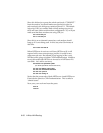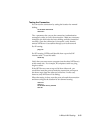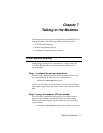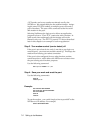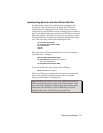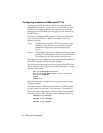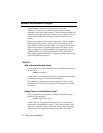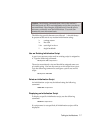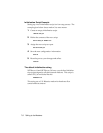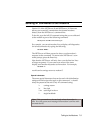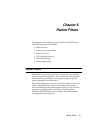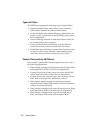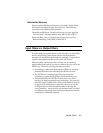
7-6 Talking to the Modems
Modem Initialization Scripts
An initialization string may be sent to any one of the
NETServer’s S-ports every time the port is reset (a modem
resets itself each time it disconnects). An initialization string can
contain any text that needs to be sent to a port at start up. For a
modem, the initialization string will usually contain AT com-
mands.
There is no standard list of what commands a modem initializa-
tion string should execute. Every system administrator will
have different needs for each modem. For example, an adminis-
trator with a number of remote dial in users who have a wide
range of modems of varying reliability may choose to force an
internal modem to a safe modulation like V.32 bis rather than
allow higher speed modulations. A separate initialization string
may be assigned to each port.
How To . . .
Add a New Initialization Script
Use the following command to add a new initialization script to
the Init Table:
add init <script name>
<script name> is case sensitive and must be unique among other
initialization scripts. It must not contain spaces.
Note that this command only creates an empty script. It does
not assign text to the script. Nor does it tell any port to use the
new script.
Assign Text to an Initialization Script
Once a script has been created, its contents are defined using
the following command:
set init <script name> “<text>“
<text> can be no longer than 56 characters. It is case sensitive
and must be surrounded by quotes. This is the text that is sent
to the port when the script is executed. For example, the string
could contain AT commands needed to initialize a modem.



